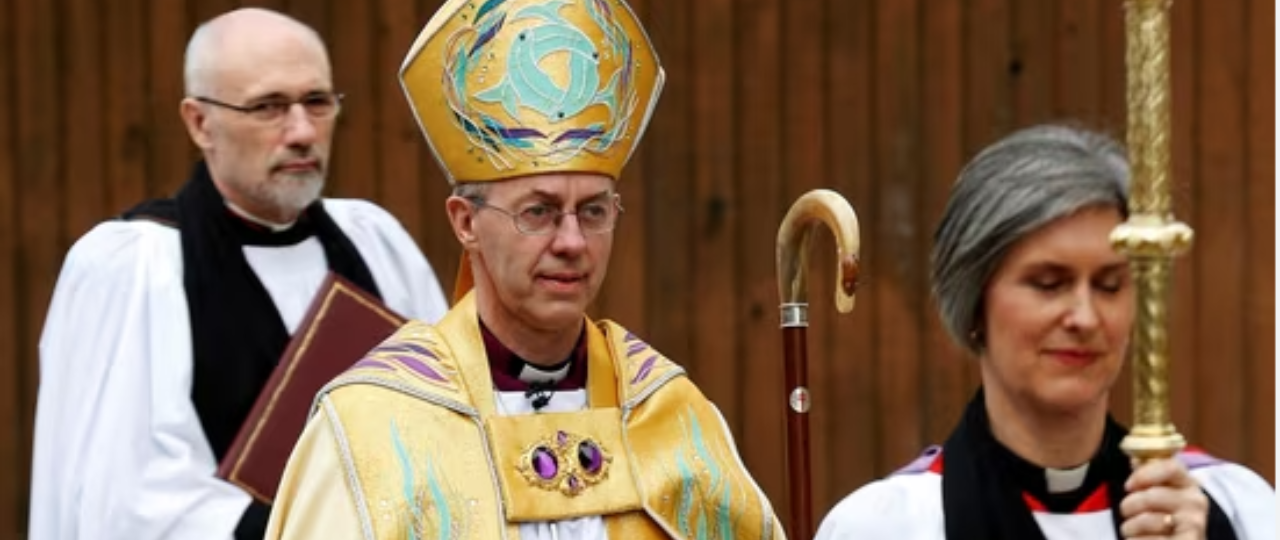Archbishop of Canterbury, Justin Welby Resigns Over Child Abuse Scandal
In a striking turn of events, Archbishop Justin Welby of the Church of England announced his resignation on November 12, 2024. His departure follows a major public outcry surrounding his handling of abuse allegations tied to John Smyth, a former barrister and evangelical figure accused of egregious abuses in the 1970s and 1980s. Smyth’s alleged misconduct, which includes reports of both physical and possibly sexual abuse, has raised questions about how such cases were handled by the Church, specifically the delay in reporting and protecting victims. Welby’s resignation underscores the mounting calls for accountability within the Church and the need for profound institutional reform.
The Background of John Smyth’s Alleged Abuses
John Smyth, a prominent British barrister and evangelical leader, allegedly targeted young boys who attended Christian camps he organized in the UK and Zimbabwe. Reports describe a pattern of severe physical abuse that Smyth allegedly justified as “discipline.” However, some survivors have since come forward to say that these acts of physical punishment also involved elements of sexual abuse or that they were subjected to interactions with Smyth that they experienced as sexually exploitative.
Smyth’s alleged behavior reportedly included brutal beatings that left the boys traumatized, both physically and psychologically. Credible outlets indicate that victims suffered serious injuries, with some reportedly requiring medical treatment. Survivors have shared that these beatings were carried out in private, fostering an atmosphere of secrecy and fear that prevented them from seeking help or speaking out.
While the explicit details of the abuses vary in survivor testimonies, many accounts point to an overlapping dimension of psychological manipulation, where Smyth allegedly wielded his position to control his victims. Some survivors have said that Smyth’s behavior created a climate of coercion, making it difficult for them to escape his influence.
Archbishop Welby’s Involvement and Allegations of Mishandling
In 2013, allegations about Smyth’s abusive actions were brought to the attention of senior figures within the Church, including Archbishop Welby. At the time, Welby had just assumed his role as the Archbishop of Canterbury. According to an independent report, the Church leadership did not act swiftly enough to notify authorities or take adequate steps to support survivors. This alleged delay sparked severe criticism of Welby’s oversight, with victims and advocacy groups claiming that his response fell short of the moral and legal obligations expected of his office.
Although Welby has stated that he took steps to implement safeguarding protocols and establish policies to prevent further abuses, many argue that these measures were inadequate in addressing the severity of Smyth’s actions. Reports have emerged that highlight a lack of consistent communication with survivors and a failure to prioritize their needs over the church’s institutional reputation, which some see as reflective of a broader trend in the Church’s handling of abuse cases.
Public Outcry and Calls for Accountability
The Church’s perceived delay in responding to these allegations and its alleged failure to support survivors has drawn significant backlash. Advocates for abuse survivors contend that the Church’s approach was protective of its image at the expense of transparency and victim support. Following the release of an independent report detailing the Church’s shortcomings in addressing Smyth’s actions, Welby faced calls for resignation, with critics asserting that such failures in handling abuse cases warranted leadership change.
Welby’s resignation comes as the Church faces increasing scrutiny, not only over Smyth’s case but also other historical abuse cases that have come to light in recent years. The public outcry underscores a loss of confidence in the Church’s commitment to protecting vulnerable members of its community and a broader concern about accountability within its leadership structure.
Welby’s Legacy: Achievements and Controversy
During his tenure, Welby became known for his emphasis on social justice, poverty alleviation, and his efforts to modernize the Anglican Church to appeal to a contemporary audience. His work extended beyond Britain, as he addressed global issues like income inequality, climate change, and interfaith cooperation. However, his achievements in these areas have now been overshadowed by the criticisms surrounding his alleged mishandling of abuse cases.
Supporters of Welby argue that he made genuine strides toward modernizing the Church’s approach to social issues. Yet his critics maintain that his failure to act decisively on Smyth’s abuses points to a troubling lack of accountability within the institution, which has impacted his legacy and raised questions about the Church’s willingness to reform.
The Search for a New Leader and Institutional Reform
With Welby’s resignation, the Church of England faces the critical task of selecting a successor who can guide the Church through this turbulent period. The appointment process will be overseen by the Crown Nominations Commission, which will forward its recommendations to the Prime Minister and ultimately to King Charles III for approval. Many hope the next Archbishop will bring a renewed focus on transparency, accountability, and safeguarding, and will take concrete steps to reform the Church’s approach to handling abuse allegations.
A Potential Turning Point for the Church
Welby’s resignation marks a pivotal moment for the Church of England. Smyth’s alleged abuses, and the Church’s handling of them, serve as a powerful reminder of the responsibilities held by religious institutions. As the Church seeks to rebuild trust with its community and the public, it faces the challenge of instituting reforms that prioritize victim support and ensure swift action in the face of future abuse allegations.
In the wake of Welby’s resignation, the Church of England has a profound opportunity to reevaluate its internal practices and redefine its commitment to justice, transparency, and support for those affected by abuse. The road ahead will undoubtedly be challenging, but with a leader who values accountability and ethical integrity, the Church has a chance to renew its mission and restore faith within its community.

